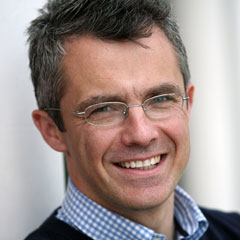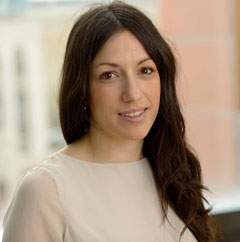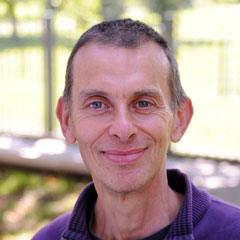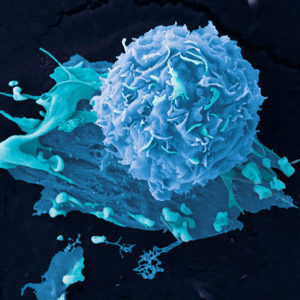Molecular Pathology and Diagnosis of Cancer
20–25 November 2022
Wellcome Genome Campus, Hinxton
Interactive training in current molecular methods for cancer diagnosis
Summary
A joint Wellcome Connecting Science and the Royal College of Pathologists initiative, this course is aimed primarily at trainee pathologists or haematologists. The programme introduces participants to the rapidly evolving field of the genomics and molecular diagnosis of cancer. Clinical scientists in the field of molecular diagnosis are also encouraged to apply.
The course consists of a series of practical, laboratory-based sessions covering current diagnostic methodologies, along with hands-on training in bioinformatic tools for analysis of DNA sequencing data.
In addition, the course hosts a number of leading national and international speakers who give seminars on the molecular pathology of several common cancers, such as breast, colorectal, leukaemia, familial cancers and others.
The programme will also include talks and demonstrations of next generation sequencing platforms (including the latest developments in genomic technologies) as well as discussions on the ethical, societal and practical implications of introducing genetic analyses to the clinic.
PLEASE NOTE: Limited bursaries are available to help applicants from anywhere in the world to attend this course and are awarded on merit. The course is also approved annually for CPD accreditation by the Royal College of Pathologists.
Programme
The programme will include lecture and practical laboratory/computer-based sessions covering the following topics:
- Standard and real-time quantitative PCR
- Sanger sequencing
- Fluorescence in situ hybridisation (FISH)
- State-of-the-art next-generation sequencing technologies
- Target enrichment approaches
- Bioinformatic analysis for mutation detection
Learning outcomes
It is anticipated that by the end of the course, participants will have sufficient knowledge of contemporary molecular methodologies applied to cancer diagnosis to become familiar with the dramatic changes in the practice of molecular pathology and haematology. They will also learn about the genomics of common cancers and how these can help guide diagnosis, prognosis and treatment of patients. Participants will also gain an understanding of the format of next generation sequencing data, and the use of analytical tools and publicly-available databases to interpret these data for patient diagnosis and prognosis. The course also hopes to inspire trainees to follow a career in genomic cancer medicine and research.
Instructors and speakers
Course Instructors

George Vassiliou
Wellcome Sanger Institute, UK

Elli Papaemmanuil
Memorial Sloan Kettering Cancer Center, USA

Michael Quail
Wellcome Trust Sanger Institute, UK
Anthony Bench
NHS Lothian, Edinburgh, UK
Bridget Manasse
Addenbrooke’s Hospital, Cambridge, UK
Guest speakers
How to apply
Prerequisites
Applicants should be trainee pathologists or haematologists. Clinical scientists in the field of molecular diagnosis are also encouraged to apply.
CPD
CPD accreditation is sought annually from the Royal College of Pathologists.
How to Apply
Please click the Apply button above to begin the online application process. Places are limited and will be awarded on merit. If you have any problems with the online application process, please contact us.
Please note: Applications must be supported by a recommendation from a scientific or clinical sponsor (e.g. supervisor, line manager or head of department). A request for a supporting statement will be sent to your nominated sponsor automatically during the application process. Applicants must ensure that their sponsor provides this supporting statement by the application deadline. Applications without a supporting statement cannot be considered.
Cost
| Cost | Accommodation / meals | |
| *Course fee | £820 | This is a residential course and the fee includes all accommodation and meals. |
*The course fee is subsidised by Wellcome Connecting Science and applies to non-commercial applicants. Please contact us for the commercial fee.
Bursaries
Limited bursaries are available (up to 50% reduction on the course fee) and are awarded on merit. If you would like to apply for a bursary, please complete the bursary section of the online application form.
Where there are many bursary applications, the selection committee may issue smaller amounts.
Bursaries can be applied for as part of the course application form. Applicants will be notified of a bursary award along with their place on the course, usually within one month of the application deadline. The decision of the selection committee is final.
Please note that both the applicant and sponsor are required to provide a justification for the bursary as part of the application.
Additional funding opportunities
Visit our support page for additional financial support currently available.
Testimonials
Feedback from the 2020 course:
Very organized and subject specific from basic to update information
I have taken away more knowledge that I will use in daily practice than I had anticipated.
The presenters were all great. Clearly experts and able to answer any questions thrown at them in a helpful and considered way.
Fantastic course. Thank you for the time and effort you put in to organising it.

